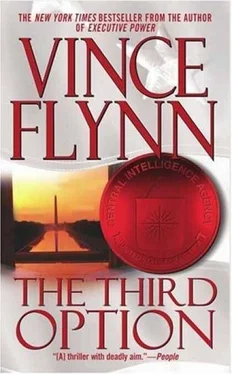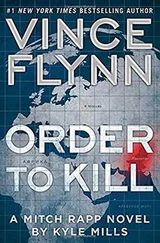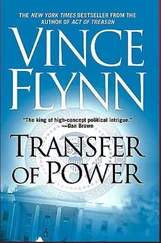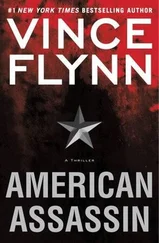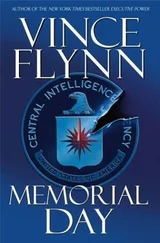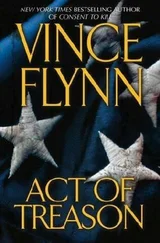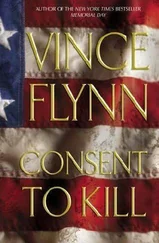Kennedy closed the book and looked out the window: The government sedan she was traveling in had just turned off Constitution onto 17th Street. The Ellipse was to her right, and ahead was the White House. The entire mansion was covered in scaffolding as workers raced to mend the damage of the terrorist attack by Christmas. President Hayes had been adamant that repair of the old, glorious building be conducted with around-the-clock vigilance to help erase the scars from the American mind as quickly as possible. The entire building had been placed in a bubble of aluminum and plastic to keep the cameras away. Fortunately, severe damage had been avoided, thanks to the quick actions of the fire department. The buzz around town was that the general contractor that had been hired was ahead of schedule. If they finished by Christmas, they would get a twenty-percent bonus. The West Wing was already open for business, but there was much speculation and wagering on the street about whether or not the president and the first lady would be celebrating the birth of Christ in the Executive Mansion. For now, they were staying in Blair House across the street from the Old Executive Office Building.
The four-door sedan maneuvered its way through the barricades designed to thwart a truck bomb and stopped at the southwest gate of the White House grounds. Two uniformed Secret Service officers stepped out from the guardhouse and began checking IDs. It wasn't too long ago that they would simply have opened the gate and waved them through, but the attack had changed everything. Kennedy visited the White House frequently, and often with the same driver and bodyguard, but that didn't matter anymore. She rolled down her window and handed over her credentials. The officer looked at them briefly and then handed them back. A third Secret Service officer circled the sedan with a bomb-sniffing dog and checked the trunk. The whole exercise took less than a minute, and then the gate opened.
The driver pulled up to the long cream-colored awning that led to the ground floor of the West Wing. Kennedy thanked the two men and told them to wait in the car. Once through the doors, she held up a heavy blue pouch with a metallic lock across the top. The officer was used to seeing the arrival of the blue pouch, which contained the PDB. The Secret Service officer sitting behind the desk said good morning and spun a clipboard around so the doctor could sign in. With that done, Kennedy headed up the stairs to her left. One of the blue suits, an agent from the president's Personal Protection Detail, was standing at the top of the stairs. She knew this meant the president was in the West Wing. Kennedy checked her watch; at 1:12, he was probably eating breakfast and reading his morning papers.
Just before she reached the Oval Office, she stopped at a door on her right and held up the blue pouch. A towering Secret Service agent in a dark gray suit nodded and allowed admittance into the president's private dining room. Kennedy found the president sitting in his usual spot, with his four folded newspapers laid out in front of him.
A small Filipino man dressed in a white Waistcoat and black pants approached and said, «Good morning, Dr. Kennedy.»
«Good morning, Carl.»
The man took the pouch from Kennedy and then her jacket. Kennedy sat at the circular oak table across from the president and unlocked the pouch.
The president glanced up and said, «Good morning, Irene.»
«Good morning, sir;' «How was your weekend?»
«Just fine, sir, and yours?»
Kennedy extracted a copy of the PDB and slid it across the table. She knew they would continue with the small talk until Carl left.
«It wasn't too bad. Camp David is really beautiful this time of the year.» Hayes perused the headlines on the first page of the PDB and noted that they covered many of the same topics that were on the front page of the Washington Post. He knew the content would be a different matter.
Carl approached Kennedy and set down a mug of black coffee and a blueberry muffin. «The muffins are very good today. Low fat.»
Kennedy smiled. «Thank you, Carl.» The man always went out of his way to try to get her to eat.
«Mr. President, the pot on the table is full. If you need me, just buzz.»
«Thank you, Carl.» President Hayes was a huge coffee drinker. Eight to ten cups a day was his standard. He liked to point out to all who criticized his coffee consumption that Dwight D. Eisenhower drank twenty-some cups a day and smoked four packs of unfiltered cigarettes while he was the Supreme Allied Commander. After that, the man went on to serve as president for two terms and lived until he was seventy-nine. Hayes was very fond of telling overly concerned types the Eisenhower bio. His wife was equally fond of telling him, «You're no Dwight D. Eisenhower.» It had now gotten to the point where Hayes told the story just so he could hear his wife utter her line. Hayes was the first to admit he was no Dwight D. Eisenhower. Very few people were. Hayes was a Democrat, but the more time he spent in the Oval Office, the more he grew to like Eisenhower, who was a Republican. Ike was Hayes's dark horse candidate for best president. Everybody always mentioned Washington, Jefferson, Lincoln, and FDR, but Ike was the only one of the group who came from abject poverty and rose to the most important office in the land. Add to that the fact that he whupped the Nazis, his trailblazing efforts to end segregation, the way he helped out the farmers, and the way he kept military spending at bay, and in Hayes's mind he had a real shot at being the best.
The outer door clicked shut while President Hayes was pouring another cup of coffee. Looking over the top of his reading glasses, he asked, «What in the hell happened in Germany? We have a meeting with their ambassador in forty minutes.»
Kennedy didn't quite know how to answer the question since she herself was in the dark. «I'm trying to figure that out, sir. In a nutshell, we're short on specifics.»
«Haven't you talked to Mitch?»
Kennedy shook her head. «No. Originally, we were told that he had been lost during the operation.»
Hayes leaned forward, moving his bowl of cereal and newspapers out of his way. «Say again?»
«Some of the other assets that were involved in the operation reported that Mitch had been killed. We no longer believe that to be true.»
Hayes frowned. «You'd better back up and give it to me from the start.»
Kennedy began to do so but cautioned that her information was incomplete. She went on to explain the details they had learned from their counterparts in Germany. Hayes was particularly interested in the description of the suspect who had kidnapped a cab driver and taken him to Freiburg. For the most part, the president remained calm during her summation of the weekend's events.
When she was finished, Hayes asked, «Why haven't you debriefed the other two who were involved?»
Kennedy hesitated at first. One of her jobs, as she saw it, was to insulate the president from this type of mess. Plausible deniability could be a very important thing. Her decision to tell him was eventually based on fear, fear of what or who might be behind the death of the Jansens. «Sir, we sent a team to pick the Jansens up in Colorado. They were preparing to make contact when they witnessed a second team… a team we know nothing about, move in and eliminate the Jansens. Our team watched from a distance as the bodies were removed and the area sanitized.»
The frown returned to the president's face. «Now I'm really confused.»
«So are we, sir.»
«Who would want to kill them?» Hayes's face twisted in a scowl. «Why?»
«We're looking into that, sir.»
«Could the Germans move that fast?»
«I doubt it, sir.»
«What about something completely unrelated? Is it possible this was about something else they were involved in?» President Hayes was grabbing for any reason other than the one he didn't want to hear. That they had been compromised, that there was a leak somewhere.
Читать дальше
